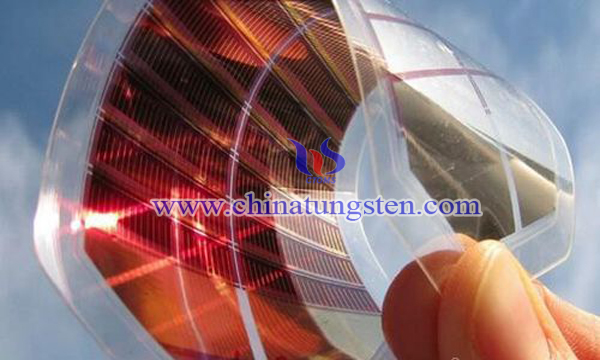Nano Organic Composite Tungsten Oxide Electrochromic Films Preparation
- Details
- Category: Tungsten Information
- Published on Tuesday, 08 October 2019 23:30
The preparation of nano organic composite tungsten oxide electrochromic films can make use of nano-structured tungsten oxide films to make organic electrochromic materials better compounded with nano-tungsten oxide electrochromic materials, thereby improving the electrochromic properties of tungsten oxide electrochromic films. The preparation process is as follows:

First is to prepare nano-sized monodisperse polystyrene colloidal spheres.
Second step, a certain amount of ammonium tungstate and citric acid is obtained according to the amount of n-tungsten: n citric acid = 1:1-1.5, and ammonium tungstate and citric acid are dissolved in 25-28% ammonia water. Ammonia water can dissolve ammonium tungstate and citric acid. A certain amount of polyethylene glycol is added into the solution according to the amount of m-polyethylene glycol: m-citric acid = 0.3-0.6:1, followed by anhydrous ethanol and water (the amount of anhydrous ethanol ammonium tungstate solution A can be obtained by stirring and dissolving 1-2 times the amount of water.
Thirdly, according to the mass fraction of polystyrene colloidal spheres 2.5%-5%, a certain amount of nano-scale monodisperse polystyrene colloidal spheres were weighed. The composite suspension was obtained by adding the nano-scale monodisperse polystyrene colloidal spheres into solution A and dispersing them by ultrasound for 2-3 hours.
Fourth, the ITO glass used for cleaning and drying is immersed vertically in the composite suspension, and then it is stationary at 40-60 until the composite suspension evaporates completely, a layer of composite film is grown on the ITO substrate.
Fifth, nano tungsten oxide electrochromic films can be obtained by calcining the composite films in air for 3 to 5 hours at 400 ~550 ℃.
Sixth, according to the concentration of 0.15-0.3 mol/L aniline and the ratio of n-aniline: n-o-phenylenediamine = 1:1-0.8, the hydrochloric acid solution of aniline and o-phenylenediamine was prepared, and the solution B was obtained by adding persulfate amine (its concentration is 0.2-0.25 mol/L). The nano-scale tungsten oxide electrochromic film was immersed vertically in solution B, reacted at 40-80 ℃ for 5-24 hours, and then pulled into film. The excess organic substances on the surface were absorbed by filter paper. The nano-organic composite tungsten oxide electrochromic film was obtained by drying in vacuum dryer at 30-40% relative humidity and room temperature.
The organic electrochromic materials in the nano-composite tungsten oxide electrochromic film structure are completely filled in the nano-pore of tungsten oxide, so that organic materials and inorganic materials can be evenly combined in the nano-scale to make up for each other, thus effectively improving the problems of pure organic electrochromic materials and inorganic electrochromic materials.
- Tungsten Oxide Manufacturer & Supplier, Chinatungsten Online: www.tungsten-oxide.com
- Tungsten News & Prices of China Tungsten Industry Association: www.ctia.com.cn
- Molybdenum News & Price: news.molybdenum.com.cn
- Tel.: 86 592 5129696; Fax: 86 592 5129797; Email: sales@chinatungsten.com



 sales@chinatungsten.com
sales@chinatungsten.com